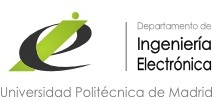Biomedical Imaging Systems (SIB 2)
Skills:
1. Analyze the techniques for the acquisition of biomedical imaging that show not only anatomy but also provide information on the operation or biological activity of a tissue or organ.
2. Analyze the molecular imaging techniques in detail, using different markers that allow molecules or genes to be identified.
3. Apply methodologies and smart processing algorithms that enable the relevant information to be obtained in each biomedical application.
Training activities and this relationship with skills:
The course is based on the delivery of lectures to acquire the aforementioned skills. Students complete the course with a final individual project to be presented publicly as part of the activities required to acquire the application skills and the secondary skills of documentation, communication and publication.
Coordination actions (if any):
Assessment and rating methods: Test exam (40% of the marks), Final Project (40% of the marks)

